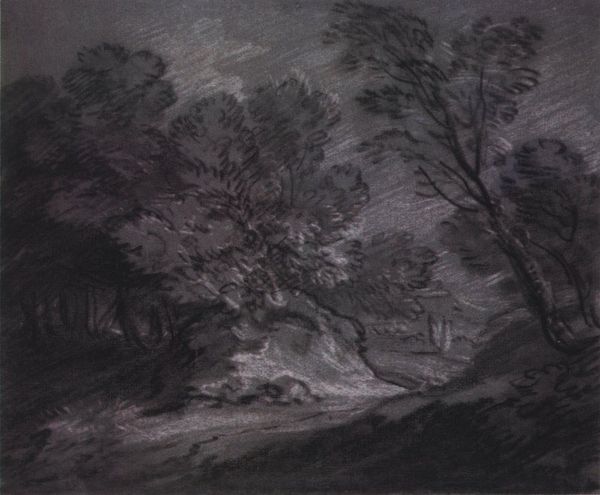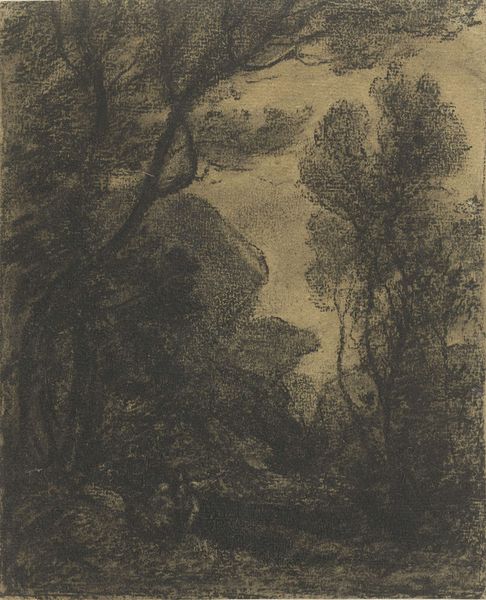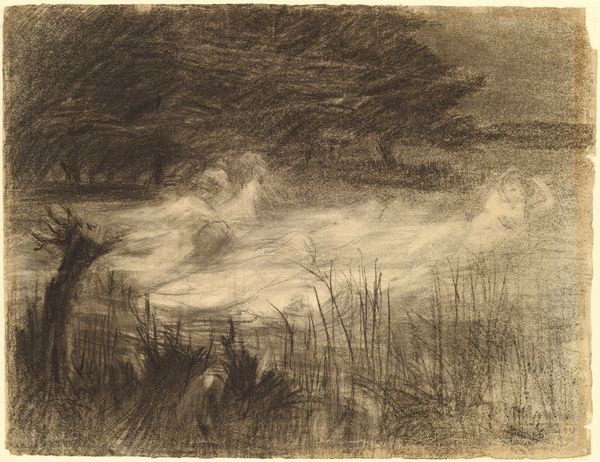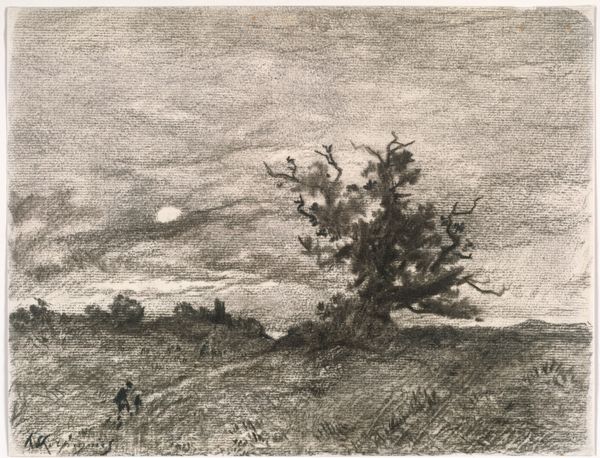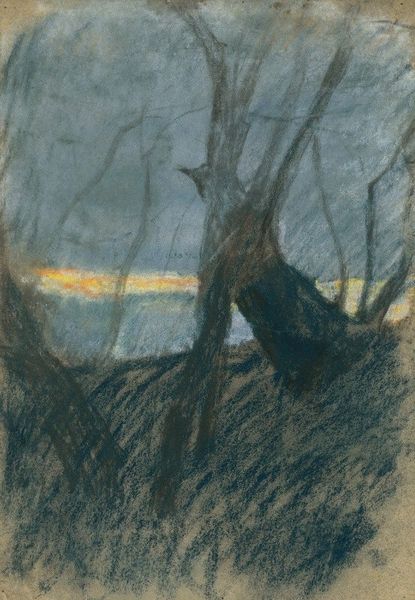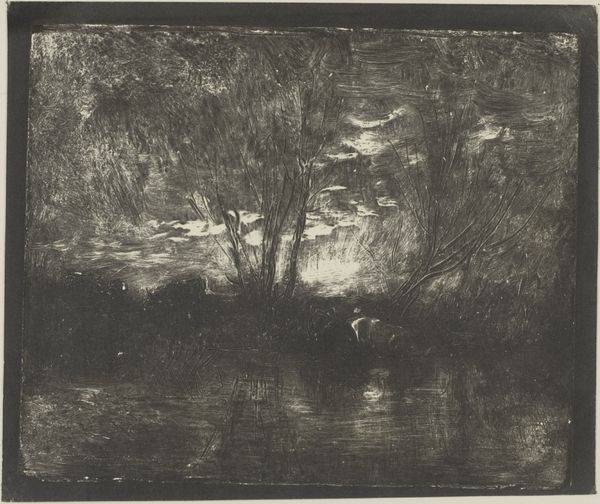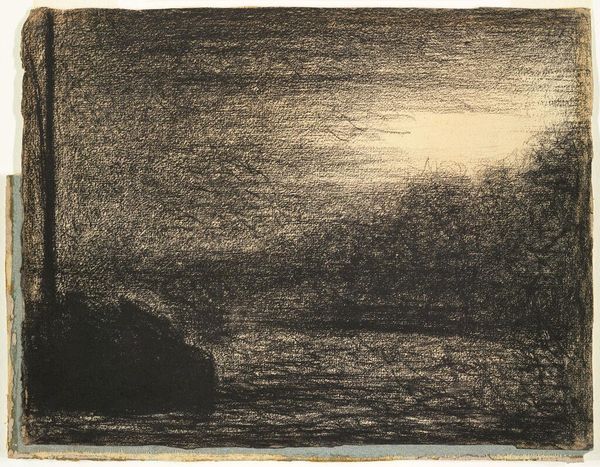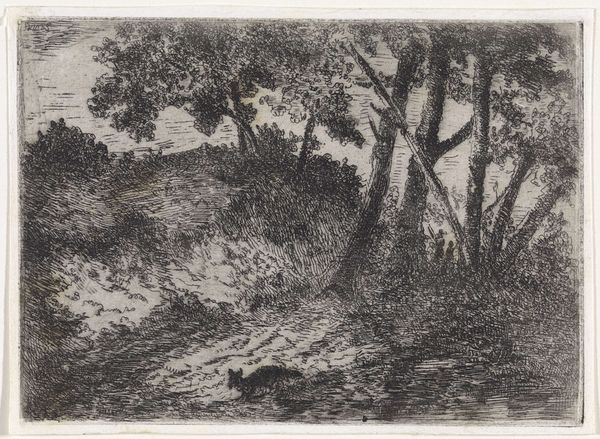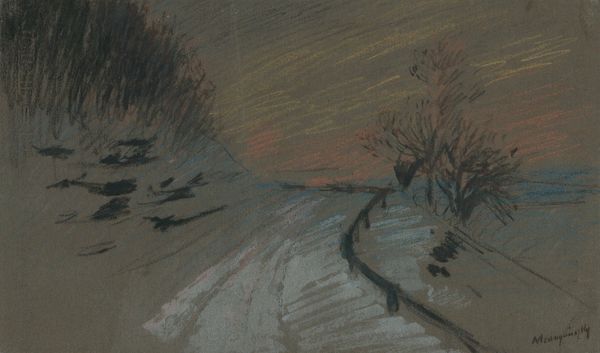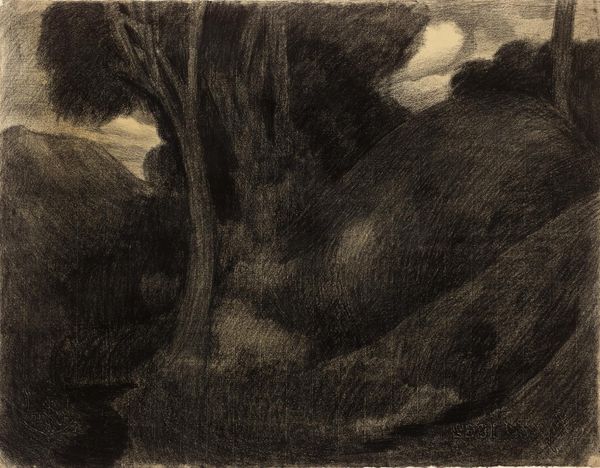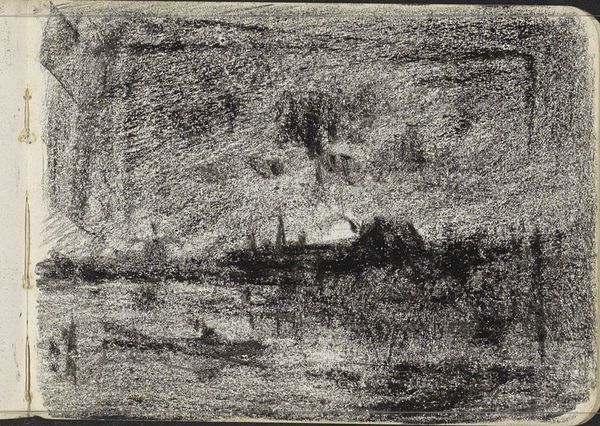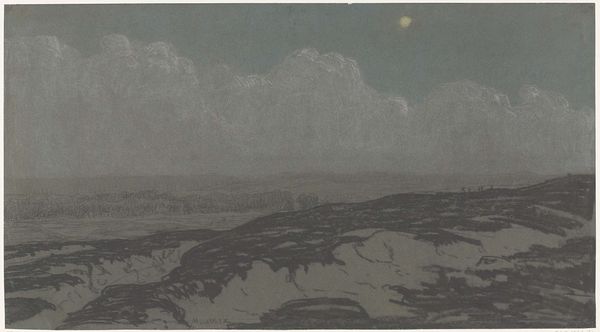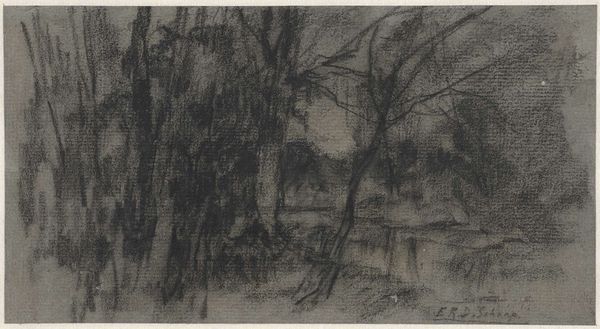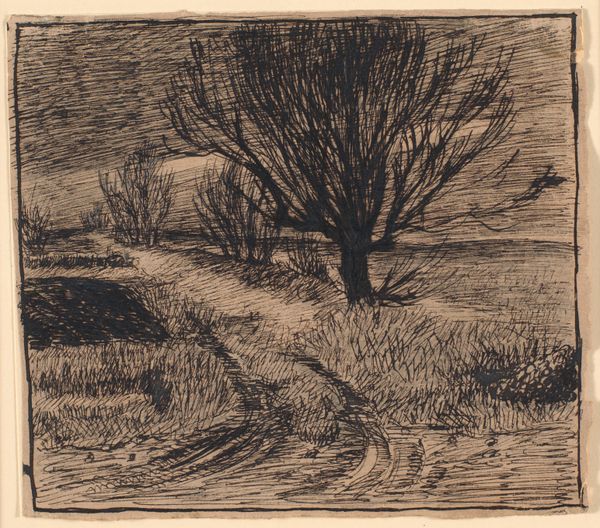
Dimensions: height 117 mm, width 159 mm
Copyright: Rijks Museum: Open Domain
Editor: Here we have François Cachoud’s "Landschapsimpressie," created sometime between 1876 and 1943. It's a small landscape drawing employing charcoal and pastel, even incorporating frottage, which gives it an intriguing texture. It strikes me as quite moody, almost dreamlike. What’s your take on this work? Curator: I find myself drawn to the materiality of this piece. Consider the choice of charcoal, pastel, and even frottage. These aren't just aesthetic decisions; they represent a deliberate engagement with the land, translated through accessible and readily available materials. How does this humble assembly of material intersect with Romantic ideals of the sublime landscape? Editor: That’s interesting! I hadn't considered the accessibility of the materials themselves as part of the statement. I was focused more on the representation of nature. So you’re saying the materials used change our understanding of the work, then? Curator: Absolutely. Think about it: frottage is literally taking a rubbing, a direct impression of the land. It is a raw process and an act of almost physically grasping at the terrain. Does this demystify Romanticism's traditionally elevated, almost inaccessible, presentation of nature by grounding it in the everyday? Editor: I see what you mean. It shifts from idealized nature to a hands-on, almost working-class perspective of interacting with the landscape. Is he romanticizing *labor* instead? Curator: Perhaps. It prompts us to consider how labor and materiality themselves become subjects, moving beyond mere representation to become part of the artwork's narrative. It begs the question: what is Cachoud trying to *do* here, more than represent a view? Editor: This has really broadened my understanding. I was initially caught up in the artistic style and composition, but now I realize I should consider what is this artist actually making from what materials. Curator: Exactly. Looking at the landscape through the lens of production changes everything.
Comments
No comments
Be the first to comment and join the conversation on the ultimate creative platform.
